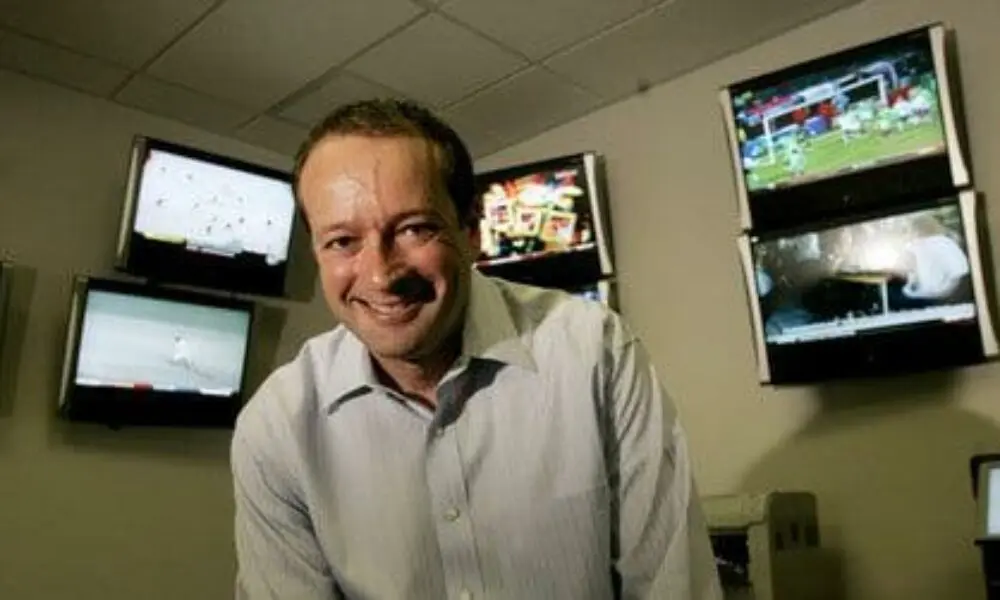The Nevada Gaming Commission on Thursday approved the state’s newest sportsbook headed by Gambling Hall of Famer Joe Asher, who defended the importance of state regulation and railed against prediction markets that are proliferating across the nation.
Boomer’s Sportsbook is expected to launch Aug. 1 at The Commercial in Elko before spreading out a few days later at Ellis Island just off the Strip and Casino Valle Verde in Henderson – both owned by Garry Ellis, who has agreements with William Hill. Bettors will be able to access Boomer’s statewide via a mobile app. It will be the only independent operator in the state.
Commission members praised Asher as a leader in the sports betting industry with an impeccable reputation before approving the licensing by a unanimous vote. They said it would be a welcome addition to the state.
Asher, who owned and operated the former Lucky’s Race & Sports Book that was sold to William Hill in 2012, took aim at prediction markets when asked by the Commission to weigh about the operators that are drawing their legality from the Commodity Futures Trading Commission.
“As a rule I am of the view that any form of gambling should be regulated,” Asher told the Commission. “I come to that position because of a lifetime being around gambling. My father introduced me to gambling at a very early age, and he had a gambling problem. He was a compulsive gambler, and it caused great damage in his life. I have seen on a personal level the harm that can come from gambling. Any form of unregulated gambling is antithetical to the public interest, and I’m strongly opposed to it. The idea that somebody could have this hypothetical right to offer essentially unregulated gambling or gambling under the auspices of a federal agency is inconsistent with the long-standing policy in our country that gambling is essentially a matter regulated by the states.”
Asher said the concept of predictive markets allowing wagers on sports under CFTC regulations would have been a “complete surprise” to Supreme Court Chief Justice John Roberts when in 2018 it overturned the 1992 Professional and Amateur Sports Protection Act that essentially banned full-fledged sports wagering outside of Nevada.
“My old friend (attorney) Ted Olson when he was trying to come up with arguments as to why PASPA was an unconstitutional statute, it seems like everybody was asleep and sports betting was legal all along under the auspices of the CFTC,” Asher said. “That doesn’t make much sense to me. I’m always in favor gambling being something that’s regulated and at the state level, which is historically the practice, unless Congress makes a clear and explicit decision otherwise.”
Asher also supported Nevada’s requirement that customers must sign up in sportsbooks to have mobile accounts unlike many other states that allow remote signups. He said that has protected the casino’s investments in their brick-and-mortar operations and race and sportsbooks. Those operations bring people into the properties to play slots and spend money at restaurants.
“It applies to my business,” Asher said. “It wouldn’t exist except for the in-person sign up requirement. There would be no point in doing it.”
Asher also opined on the latest change in state law that will make hosting race horse betting more profitable.
Nevada until recently had a requirement that racebooks must get their results of a race from a licensed disseminator – a law that dates back when casinos started offering wagers on races when there was no video transmission. A disseminator would have someone at racetracks who would get the results and call them in.
“That made perfect sense but fast forward 50 years we can see the races on TV,” Asher said. “You can get the results on the Internet. It was always an odd thing. In my William Hill days we could watch the Super Bowl on TV and see what the result was, enter that result and pay millions of dollars in wagers to customers. But we couldn’t do that for a horse race. This requirement created an artificially high cost structure in Nevada.”



